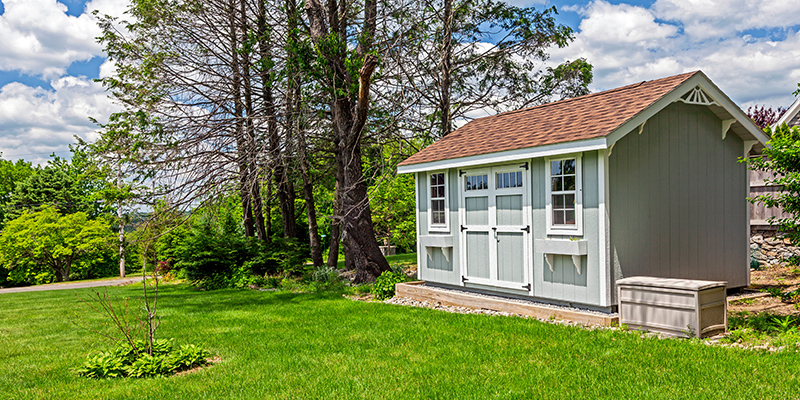11 Financial Mistakes A Self-Managed HOA Must Be Wary Of

A self-managed HOA is more vulnerable to certain financial pitfalls compared to a professionally managed one. And the key to avoiding these pitfalls is to familiarize yourself with what they are.
Browse By Category
Sign up for Our Newsletter
A self-managed HOA is more vulnerable to certain financial pitfalls compared to a professionally managed one. And the key to avoiding these pitfalls is to familiarize yourself with what they are.
Financial Errors That Can Ruin a Self-Managed HOA
A self-managed homeowners association relies solely on the skills and expertise of the volunteer members of the HOA board. Unfortunately, not all HOAs are lucky enough to have a financial expert on their board of directors. And, more often than not, this results in poor fund management and even financial ruin.
If you are a member of a self-managed HOA board, here are the most crucial financial mistakes you must keep in mind and avoid.
1. Improper Budgeting
 Smart budgeting is a foundation of a successful self-managed HOA. Failing to properly budget for the coming year’s expenses and dues can result in a shortage of funds. This, in turn, will force your board to charge special assessments.
Smart budgeting is a foundation of a successful self-managed HOA. Failing to properly budget for the coming year’s expenses and dues can result in a shortage of funds. This, in turn, will force your board to charge special assessments.
When preparing your annual budget, remember to itemize your expenses. For instance, instead of putting all maintenance expenses under one “maintenance” umbrella, list down the specific items and costs under that category. Doing this will allow you to zero in on every expense your association expects to incur.
It is also imperative to account for any bad debts your association may have. Homeowners can default on their payments, resulting in delinquencies or unpaid dues. Forgetting to account for this will also result in a shortage of funds for your operating expenses.
You may feel tempted to lower the budget for your operating expenses in an attempt to appease members. But, budgeting lower than what is necessary will only lead to insufficient funds. Additionally, when budgeting, it is always better to provide cushions for your expenses.
2. Overlooking External Factors
Budget preparation is something that happens every year. But, you can’t expect costs to remain the same forever. There are many external factors that can affect your budget, including inflation rates, increasing wages, and vendor rates. Don’t make the mistake of copying the budget from the year prior without looking into these factors.
3. Cutting Corners Improperly
Homeowners can experience financial hardship and a down economy can affect your association’s financial condition in many ways. Sometimes, cost-cutting is a must, but make sure to stay within reason. Remember that the HOA’s job is to maintain the community and protect property values.
One way you can cut down on expenses is to become energy-efficient. Installing solar panels as well as energy-efficient appliances and light fixtures can help a lot in the long run. Water conservation is another way to save money. Even something as simple as adjusting your sprinkler schedule can affect your financial condition over time.
Another great cost-cutting method that many HOAs overlook is favoring local suppliers. Hire local vendors and contractors. This not only saves money on travel and shipping costs but also helps you cultivate a long-term relationship with your local suppliers, perhaps even resulting in future discounts and rewards.
4. Failing to Keep Accurate Books and Records
One of the biggest mistakes any self-managed HOA can make is not keeping accurate records of its financial transactions. Bookkeeping is a must when it comes to successful community management. Keeping track of your cash flow will allow you to identify where the association’s money is going. This also helps against fraud and theft within the organization.
5. Inadequate Insurance
Just because your homeowners association has insurance doesn’t mean you can leave it at that. Make sure to review your insurance policies and update them as needed every year. See to it that your association has sufficient coverage. When you lack adequate insurance, your association could end up liable for a multitude of threats and have to pay large sums of money.
6. Underfunding Reserves
The reserve fund plays an important role within your homeowners association. It is money the HOA sets aside for major repairs, maintenance, and replacements in the future. Many associations also use the reserve fund to pay for unanticipated expenses. Just like the operating fund, the reserve fund is sourced from member dues and calculated every year.
Underfunded reserves, though, can spell disaster for your HOA. If the need for a major replacement comes along, the association has no means of paying for it. In the end, your board will need to charge higher dues or impose expensive special assessments. To avoid such problems in the future and also ensure fairness among the community’s members, you must make sure to keep your reserves adequately funded.
7. Poor Dues Collection
While every homeowner is required to pay membership dues, the association — and, by extension, your board — is responsible for collecting them. Remember that the HOA relies on these dues to pay for the various expenses within the community. When you have a poor dues collection process, you risk underfunding your operating fund.
To facilitate smooth dues collection, make sure to send out reminders to all the members ahead of time. Make it easy for them to pay their dues as well. Think of convenient methods such as online payments instead of asking them to mail in checks. You should also keep track of delinquencies and perhaps even set up payment plans for struggling owners.
Many board members feel awkward about disturbing their neighbors to collect money owed to the association. Unfortunately, dues collection is something you can’t do without, so you must find it in yourself to get the job done properly.
8. Insufficient or Lack of Security Measures
 Too many self-managed HOA boards make the mistake of entrusting all the money to one person. While this might seem like a smart move on a surface level, it actually opens your association to possible fraud and embezzlement.
Too many self-managed HOA boards make the mistake of entrusting all the money to one person. While this might seem like a smart move on a surface level, it actually opens your association to possible fraud and embezzlement.
When one person controls all financial matters, it is easy to fake the numbers. A good way to counteract this, though, is to require two signatures when it comes to withdrawals, especially large ones.
9. Poor Vendor Selection
Believe it or not, the vendors you choose can also affect your HOA’s financial health. You might want to choose cheap vendors because it saves the association money. But, in the long run, it might have a negative effect on your finances.
Some vendors can charge cheap rates because they skimp on quality. This often results in shoddy workmanship, forcing your HOA to hire yet another vendor to remedy the issue. Of course, this doesn’t mean you should always go for the more expensive options. Smart vendor selection requires careful consideration, ample research, and weighing your budget against the services and quality of work.
10. Lack of Software
One way to help your HOA board manage the association’s finances is to employ the help of management software. Many HOA management software comes with accounting and financial management features, significantly reducing your workload.
Every self-managed HOA needs a little help. And if you can’t afford or simply don’t want to hire a professional management company, HOA software is the next best thing.
11. Neglecting Financial Reports
Financial reports and statements are helpful tools that let you gauge the fiscal condition of your association. With these reports, you can study the HOA’s income and expenses as well as compare your budgeted expenses with your actual expenses. These reports will allow you to adjust the way you handle the association’s finances in a way that benefits the community the most.
It Starts Here
A self-managed HOA can achieve financial success even without professional assistance. Of course, it requires some level of financial expertise, great foresight, and diligence. It also means staying away from critical errors that can negatively impact your association’s financial health.
If all this work sounds like too much for you, perhaps it’s time to outsource the job. Start looking for an HOA management company today with the help of our online directory.
RELATED ARTICLES:
- HOA Budget Best Practices Every Board Member Should Know
- What Are HOA Assessments? Are Homeowners Obligated To Pay Them?
- 25 Important HOA Policies The Board Should Think About
Trending Now
Related Article
Sign up for Our Monthly Newsletter
Sign up below for monthly updates on all HOA Resource
















